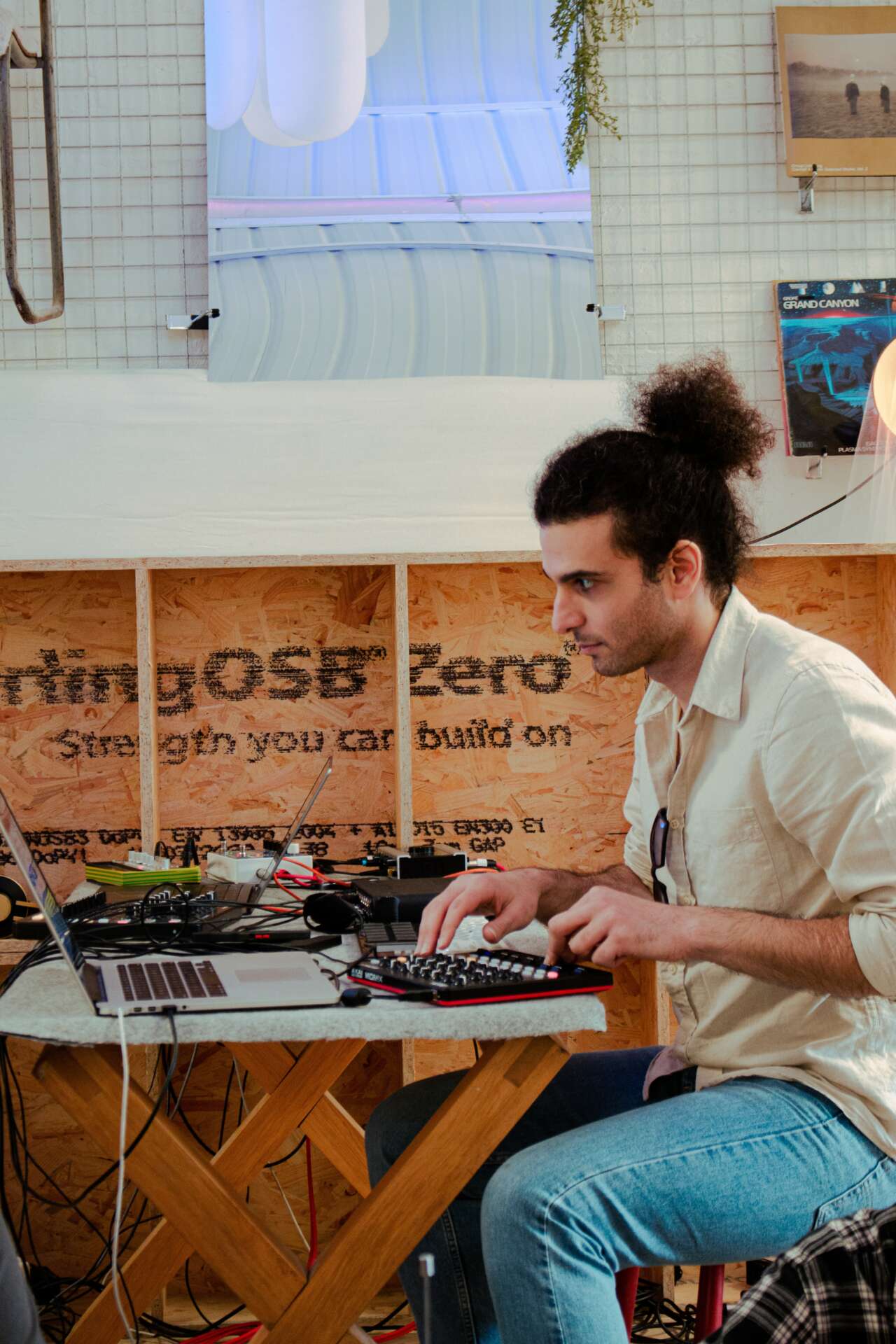We recently connected with Milad Mardakheh and have shared our conversation below.
Milad, thanks for taking the time to share your stories with us today We’d love to hear about when you first realized that you wanted to pursue a creative path professionally.
I first came to the realization that I wanted to pursue music composition professionally when I was 16. Growing up, I was a nerdy kid who was into computers and tech, mainly because of the exposure I got due to my dad being an engineer. But I had also been learning the violin, and music theory since the age of 9, and fell in love with it. By the time I was a teenager, I had taught myself the piano and was playing the violin in youth orchestras. Music was already an established and significant part of my life at that time. It was revered and enjoyed in my family, with my mom and dad, uncles and aunts playing instruments and singing as a hobby. My parents encouraged my musical activities, but at the same time wanted me to pursue a career in engineering, which at the time created tension between my love for music and computers, and admittedly I myself was pretty confused which path I wanted to take. It all became much more clear however when I started writing music in my high-school years, in the mid 2000’s Iran, when I’d fully immersed myself in Rock and Metal music.
In Iran, in those days, the Rock and Metal scene was pretty much publicly banned, illegal and in extreme cases considered satanic. Bands had to work and produce their music underground (many still do now), and were regularly harassed, detained and questioned by the authorities. Most gigs were also held underground and being an active Metal musician, certainly bore the risk of getting you into trouble with the authorities. However, having grown up in such an oppressive atmosphere, and trying to practice art freely, I think most artists/musicians including myself developed a sense of justified rebellion in our craft, and I think this continues to this day still for many artists back home. This is of course, as you are aware, just one of the many sides of the oppression and violence Iranian people have and continue to face from the ruling establishment since the Islamic revolution of 1979.
Infatuated with Metal music, I formed an alternative / nu-metal band, called ‘Achromatic’, with a few of my classmates who shared my tastes and aspirations, and later became my closest friends. For a while we hired underground studios to practice together, and covered lots of music from different bands we liked at the time, such as Korn, Linkin Park, Metallica, System of a Down, Tool, Deftones, etc. We were having a lot of fun, but being a cover band was just not enough for us collectively, and as early as 2006, together with Sam Solino – my long-time friend and music partner, who plays bass, sings and also composes in Achromatic – we started writing original songs. Soon after we recorded and published our first single, and within a couple of years, our first EP, and then a few years after that, our full-length debut album, ‘This Side of Hell’; all of it done underground.
It was really because of Achromatic that I started composing, but having been a classically-trained musician, same as my other bandmates, certainly helped. I already had the necessary skills and knowledge which allowed me to develop as a composer. The more music I wrote, the better and more confident I got. Sam and I also started writing contemporary and neoclassical film / theatre music in our early 20’s. He is a film director, and at the time was a student in the cinema department of the Art University of Tehran, and consequently got many commissions to write music for student film/theatre projects. As a result, he and I ended up writing and performing lots of music as a duo for these projects, in addition to our work with Achromatic. I was studying computer engineering myself in my undergraduate studies. As I mentioned before, I was fascinated by computers and coding since an early age, and that’s another crucial part of my identity as an artist nowadays, which manifested itself later on, during my postgraduate years.
Going back to the oppressive atmosphere for underground musicians in Iran back then, we inevitably had our run-in with the authorities, when we (Achromatic) were illegally detained, questioned and threatened by the IRGC (Islamic revolutionary guard corps) for rehearsing for a gig in an underground studio in Tehran. Fortunately, we didn’t suffer any legal consequences, but we had to cancel our gig, and go into hiatus for a while out of the fear of getting into more trouble. This point in time was a very significant one for me personally, and shortly after, towards the end of my undergraduate studies, I decided that I wanted to immigrate to the UK and study music composition properly.
I did not anticipate at the time that my background and fascination in computing would end up becoming such an important aspect of my artistic practice almost a decade down the line. What I did know however was that the feeling and sense of fulfillment I got from creating music was really unparalleled in my life. I knew I wanted to take the next step in my career, gaining an academic background in composition, and doing it in Iran did not seem to have a promising future. I was fortunate and privileged enough that I was able to immigrate really, and luckily I had gathered a substantial portfolio of works I had composed in the years prior, which allowed me to get accepted into the MMus in Composition Course at the Royal Welsh College of Music and Drama in 2015 and pursue a professional career as a composer.


Milad, before we move on to more of these sorts of questions, can you take some time to bring our readers up to speed on you and what you do?
I consider myself an eclectic and experimental composer / sound artist nowadays, focusing primarily on live-improvisation and composition of computer music, glitch, noise music and acousmatic music. The story of how I got into music and ended up pursuing a career in composition was laid out in my ‘long’ answer to the previous question. But continuing on from there, my postgraduate studies in composition, opened up the world of electronic and electroacoustic music to me. I remember how blown-away I was when I first heard a piece of Acousmatic music – a branch of electroacoustic music which focuses on collage compositions for loudspeakers, using recorded sound material usually from unconventional, non-instrumental sources. The shift in perspective from note to sound, and the musical possibility and potential of including literally any sound in a work, deeply intrigued me. It felt my ears had been liberated, and an unlimited ground for experimentation and exploration had been revealed to me.
I focused my postgraduate studies on electroacoustic music during my Masters and PhD. The more I dived in, the more I realized that my skills and background in computing were coming in handy, and for the first time in my life, the tension between my music and computing backgrounds seemed to have been resolved. It made perfect sense to me that if I were to discover my true artistic identity and voice, it would be in electroacoustic music, and more specifically in computer music, where I could harness all my abilities and knowledge.
This became the main thread during my PhD studies in composition, where I, broadly put, focused on data music and the science art discourse. More specifically, my research involved the sonification of high-throughput protein/RNA data derived from the biomolecular research of cancer cells, used to create a portfolio of electroacoustic works reflecting cancer as a disease. I wrote around 75 minutes of stereo and multichannel music, audiovisual works, multiple performance and composition interfaces and live-improvisations. Since then, programming has become a major pole on my creative axis, and the dialogue between myself as a musician and the machine (computer) has, broadly speaking, become one of the most prevalent themes within my practice.
I work a lot with synths nowadays. I design and create synth interfaces, or ‘instruments’, which I then use in my live-improvised performances and compositions. In addition, I am fascinated by the integration of machine-learning and AI tools within my own interfaces, or as controllers for other external instruments, such as modular synths. This is an ongoing thread of research for me at the moment, and expands on the theme of ‘dialogue between the musician and the machine’.
Creating instruments feels like being an explorer, making new discoveries. Each specific interface I create, ends up shaping the musical material I generate, and in turn the resulting composition, which links back to that ‘dialogue’. But as it is also the case with the concept of dialogue, this process is a two-way street. The musical material, and the compositional requirements also feed back into, and inform the ‘code’, or design of those instruments.
For me, no sound is a bad sound. Any sound or set of sounds, whether recorded or synthesized, can nowadays be shaped into coherent and meaningful musical phrases; sound-objects which have unique characteristics like spectra, morphology, trajectory, energy, brightness, purpose, etc. My works may often sound noisy and glitchy, but that’s okay. It’s not about how pleasantly things sound, but how sounds are shaped and how they move and where they lead to; how those sounds with their unique characteristics interact with one-another and assume larger forms in the overall sound-world of a work. What this kind of focus affords me is, to some extent, a kind of liberation from established idiomatic forms in music, which I personally like a lot, as it makes it easier for me to be truly myself in my musical expression, without any genre-related expectations dictating how I write. That is of course not at all saying that I don’t take inspiration from existing repertoire, or the works of others.
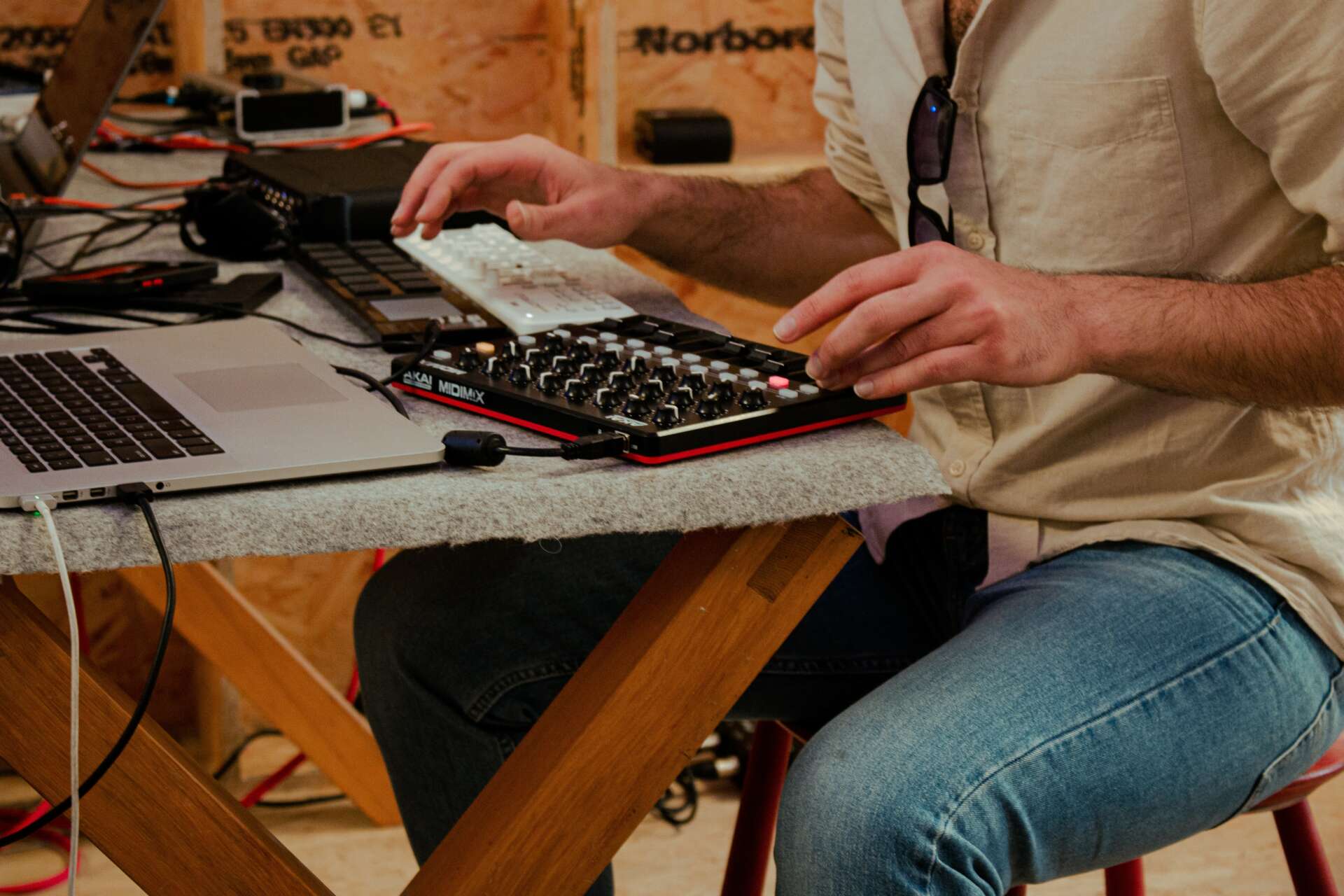
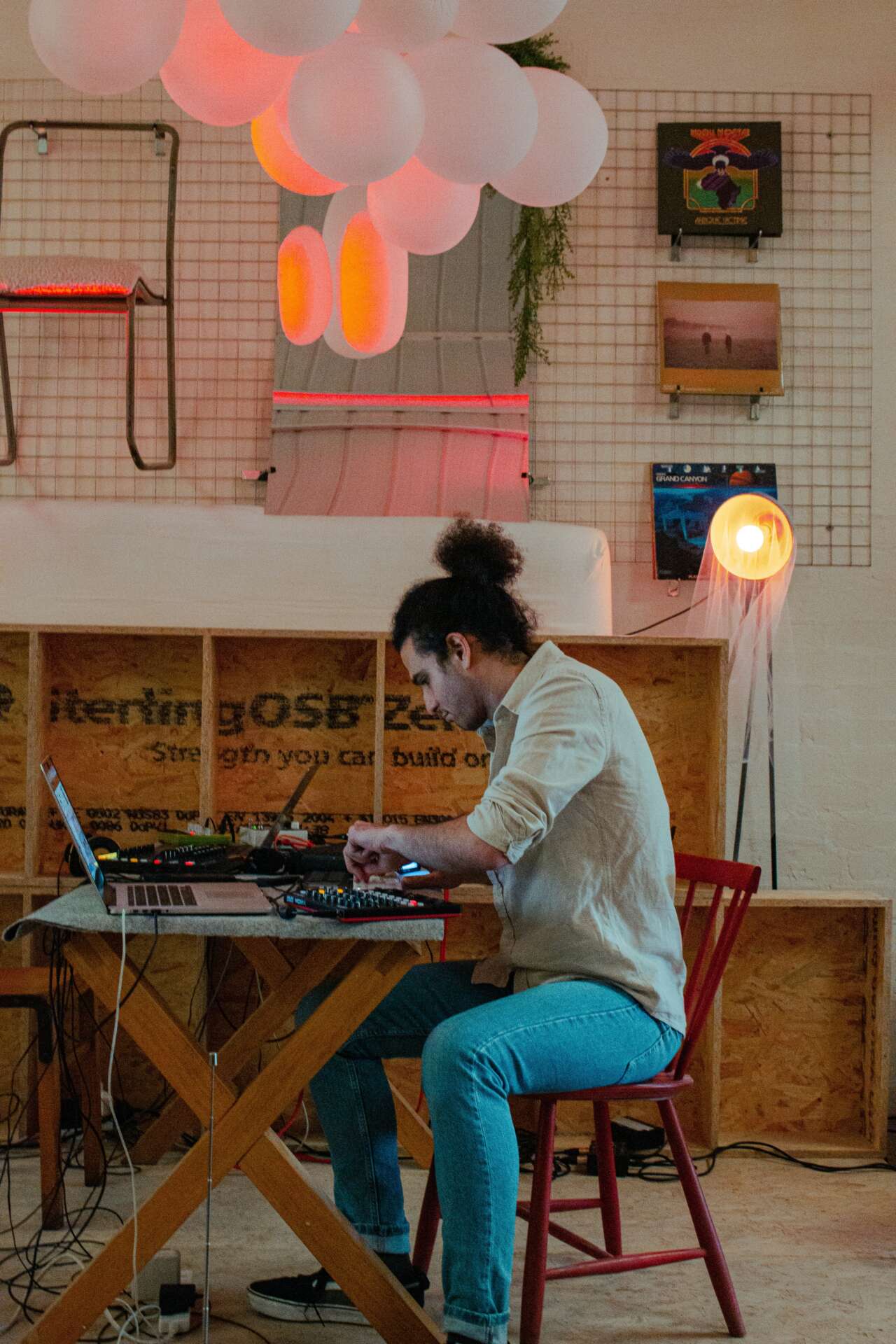
What do you think is the goal or mission that drives your creative journey?
I think at the moment one of my top goals is to learn and make discoveries as much as possible through experimentation. I want to break new ground and inspire others to also find the courage and open-mindedness to experiment in their practice. Truly amazing things can happen when you surrender to this kind of experimentalist mindset.
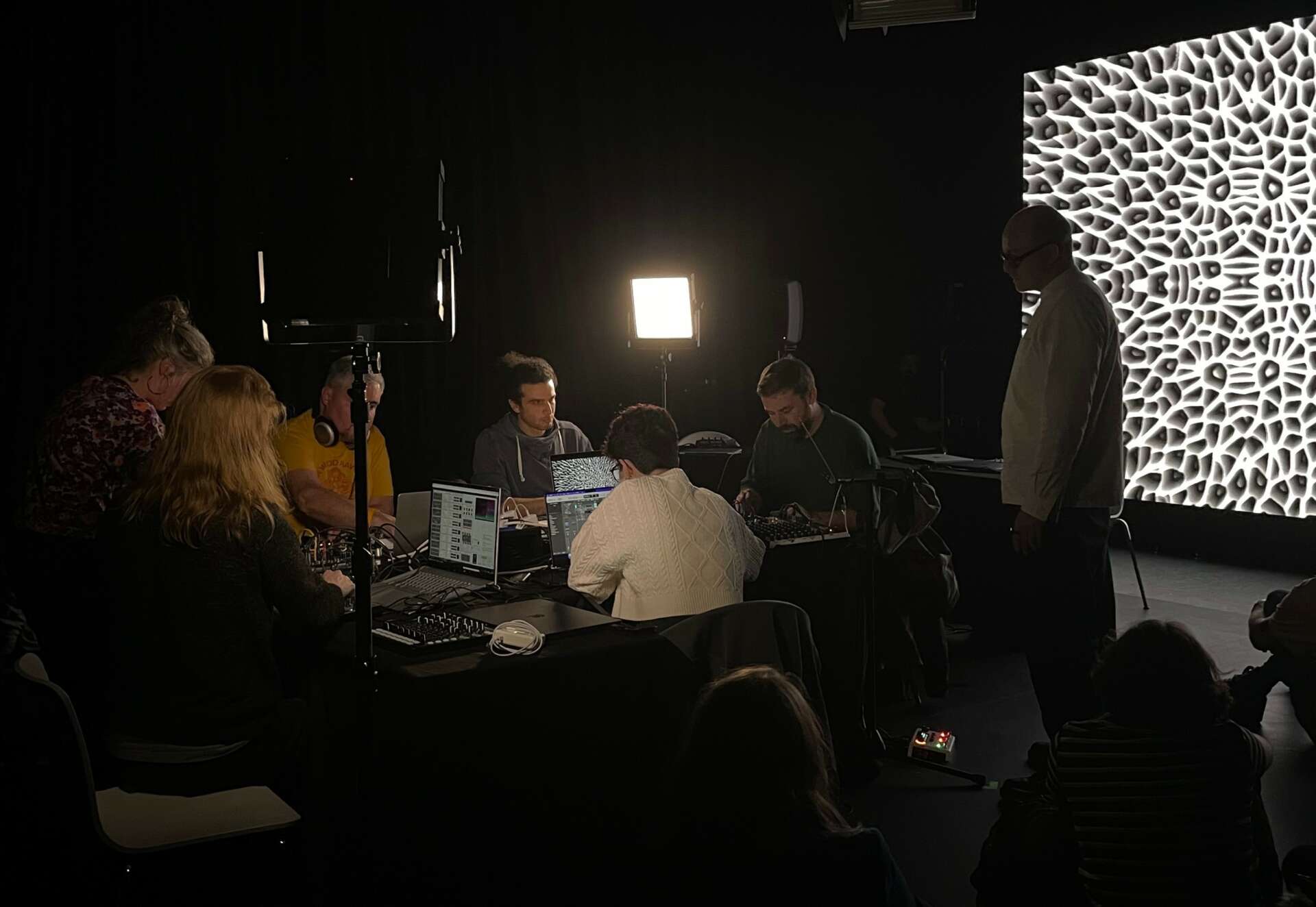
What’s the most rewarding aspect of being a creative in your experience?
The act of creating in itself; the sense of achievement in bringing something new out of nothing, into existence, and leaving a mark on my audiences, whether emotional, intellectual or both. That’s always been the most rewarding aspect of my practice for me.
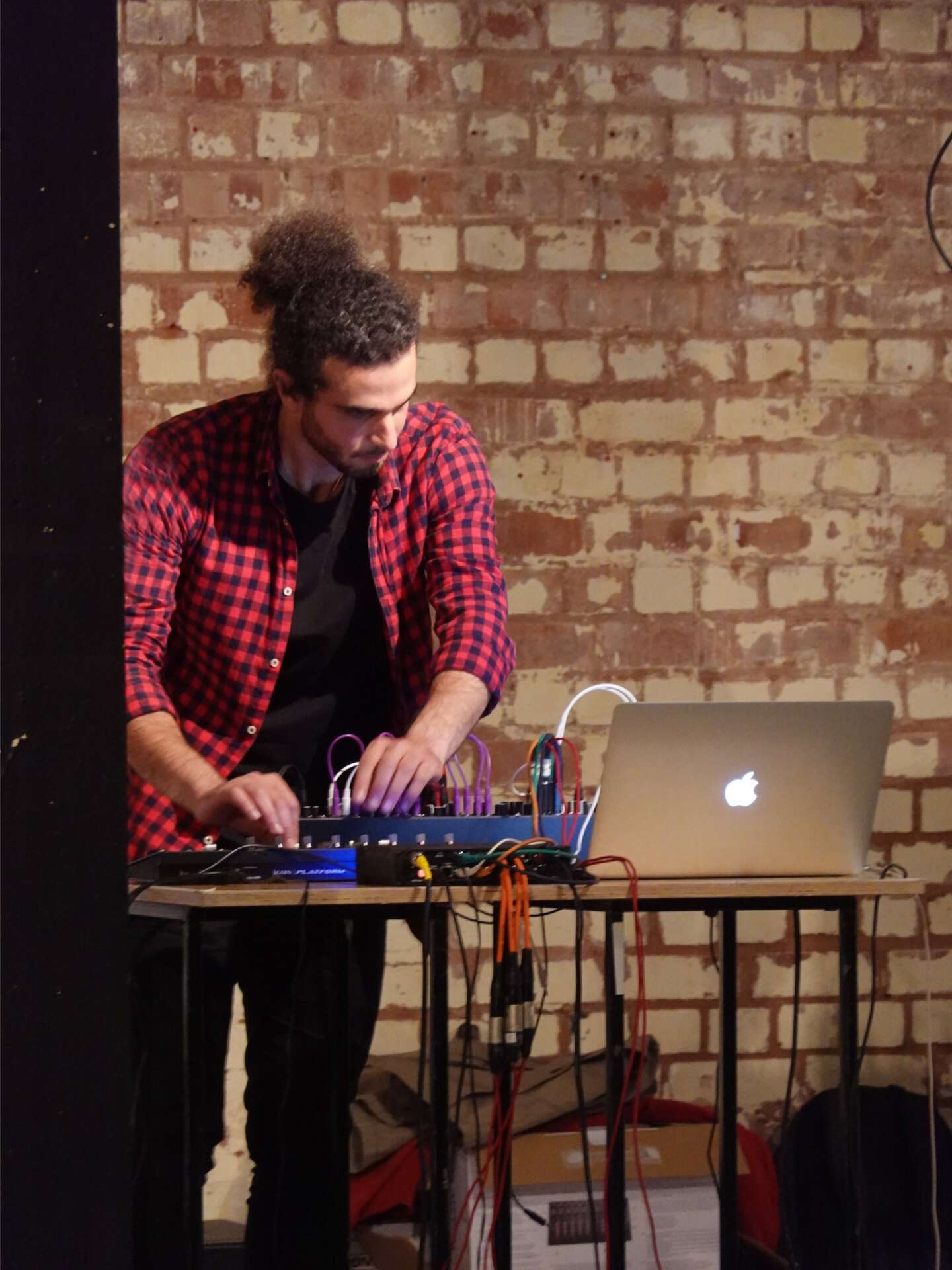
Contact Info:
- Website: mardakhehmusic.com
- Instagram: https://www.instagram.com/miladmardakheh/
- Youtube: https://www.instagram.com/miladmardakheh/
- Other: Latest Bandcamp Release: https://zabtesote.bandcamp.com/album/random-walks Bandcamp artist page: https://mardakhehmusic.bandcamp.com/
Image Credits
Sanah Iqbal


